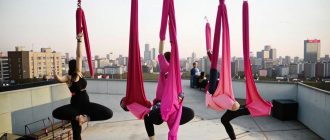Answered by an orthopedic trauma surgeon and a running coach.
This question is debated in the sports community as much as “dogs or cats” among pet lovers or “Apple or Android” among gadget lovers. Scientists have decided to clarify the issue and have come to the conclusion that you should finish your workouts at least two hours before bedtime. Is this really the case?

Orthopedic traumatologist, chief podiatrist of the First professional network of orthopedic salons ORTEKA
The timing of your workout depends directly on your daily routine and lifestyle.

How does exercise affect my sleep?
If you can only work out late at night, you shouldn’t miss this opportunity, says Sergei. Light jogging, Nordic walking, stretching, yoga are suitable for training at such a time.
Before going to bed, you should not put your body in a stressful state of strength training, game sports and other too intense exercises. They not only negatively affect the quality of sleep, but also lead to chronic fatigue, overstrain the already heavily loaded body. Such a condition can cause injury to muscles, joints and ligaments both in training and at home. The fact is that during training activates metabolic processes (metabolism) in the body, primarily in muscle cells.
- Even with a moderate load increases the heart rate (rapid heartbeat and pulse), increases blood flow – the amount of circulating blood increases significantly.
- The respiratory organs also work more intensively because the body needs more oxygen and nutrients during exercise.
- The products formed in the course of cell activity leave the body more intensively. They enter the bloodstream and are excreted by the kidneys through urination, by the skin through sweating and by the lungs through rapid breathing.
Sergei: Physical activity has a positive effect on the nervous system, which is forced to control all the ongoing processes in the body, adequately address the newly emerging motor tasks. More effectively carried out processes of excitation and inhibition of various nerve centers, better work analyzers responsible for the perception of external stimuli. But at the same time the organism recognizes physical activity as a stress, which stimulates its processes of growth, development and formation. During training, a person feels more alert, his well-being improves due to a surge of strength. This happens because all vital systems are working at the limit.

What is the best time to exercise before going to bed?
A study by a group of scientists from Canada showed that high-intensity exercise, which occurred between half an hour and four hours before bedtime, did not affect nighttime sleep. The participants in the experiment – healthy young and middle-aged people – did not notice any changes. But should we rely only on the opinion of scientists? Alexander Elkonin, a running coach, says that one should take as a basis not the results of previous studies, but one’s own experience and life circumstances.
The timing of your workouts depends on several factors: your daily routine and lifestyle.
Daily routine and lifestyle
When all of your body’s systems are working hard, it is difficult to fall asleep immediately after you stop exercising. It takes time for all processes to normalize. Given how the metabolism is accelerated, it is better to finish training no later than two, or better three or four hours before bedtime. In addition, during exercise, the production of hormones increases, which can also disrupt internal biorhythms. The endorphins and adrenaline produced during training usually keep you awake for a long time.
What are the dangers of evening workouts?
The fact that many people prefer evening workouts is understandable. At this time you can give more time to physical activity – after all, few people can afford a two-hour workout in the morning. Evening exercise is easier to plan with a light snack shortly before it starts. But there is a trap here: it is not always possible to keep away from a full dinner. In this case, there is a serious risk that the healthy feeling of satiety and light sleepiness after a meal will lead to skipping a workout altogether.

founder and coach of the ERA club – Elkonin Running Addicts
There is another risk of evening workouts – heavy exercise in the evening can cause sleep disturbances. Insomnia after heavy evening training is not an uncommon complaint among amateur athletes.
Practical experience shows that the distribution of amateur athletes by training time looks like this:
- Morning (6:00-8:00) surge of activity for those who run in the mornings before work/study or have time to stop by the gym for an hour. Light jogging in the morning is not difficult to organize, usually well tolerated subjectively and easy to fit into the daily routine.
- The bulk (at least 75%) of visitors to gyms, swimming pools, track and field arenas and jogging paths in parks are in the evening hours (18:00-21:00). These workouts can be longer and more intense (if you can get a good night’s sleep afterwards).

What can be done to avoid insomnia?
As the orthopedic traumatologist notes, the quality of sleep is directly related to how quickly the muscles relax after training.
Here’s what you can do to sleep better:
- Relieving muscle tension and fatigue is facilitated by orthopedic pillows and mattresses – they support the body in a physiologically correct position and provide comfortable sleeping conditions.
- The duration of night rest should be at least 7-7.5 hours a day.
- Before going to bed, it is better to refrain from food that is hard to digest.
- Choose less intense but beneficial physical activity – it is often better to just take a walk before bedtime and get some fresh air.






